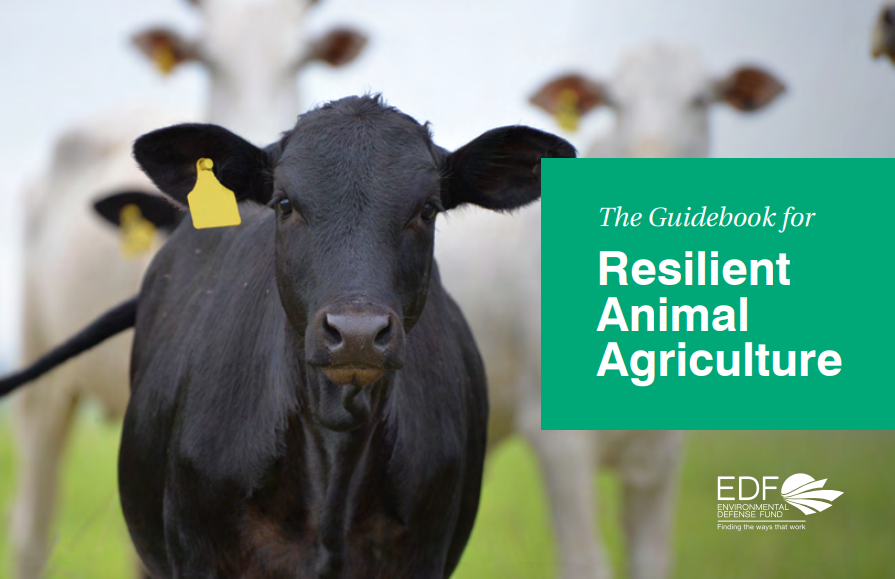Animal agriculture companies are at the forefront of climate change. As warmer temperatures and extreme weather become more frequent across the U.S., so, too, will supply chain disruptions and risks to businesses large and small. Coupled with the challenge of recovering from the devastating global pandemic, the need for companies that source and sell beef, dairy, pork and poultry to build resilience into their supply chains is urgent.
EDF’s new Guidebook for Resilient Animal Agriculture provides a roadmap for companies to invest in and build a better, more sustainable and more profitable future. It includes step-by-step guidance for supply chain best practices for the animal agriculture industry:
- Part I gives practitioners the information they need to build a sustainability framework for their company’s supply chain. E.g., assessing your company’s environmental footprint, setting goals for improvement, implementing solutions to mitigate environmental impacts, and measuring as well as reporting publicly on your progress.
- Part II provides guidance on how to implement your sustainability plan and take actionable steps towards your goals. This new resource includes step-by-step implementation guides for each major impact area, case studies (focused on Unilever, Smithfield, Campbell Soup Company and poultry grower Spencer Pope) and additional resources for you and your supply chain partners.

